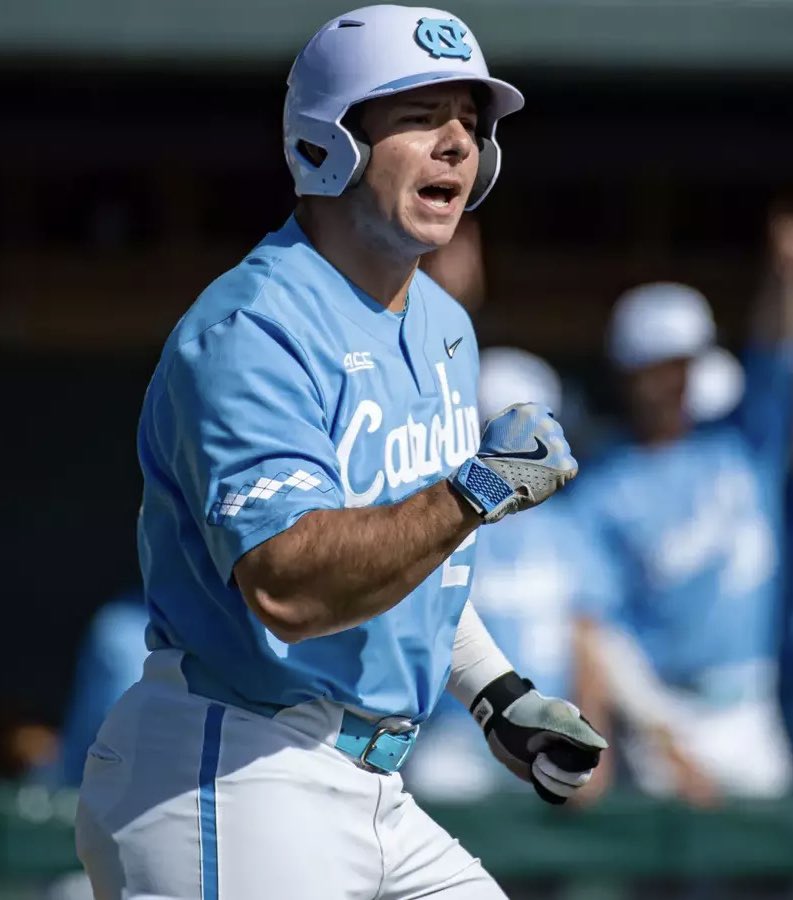significant development for collegiate baseball, former University of North Carolina (UNC) first baseman Alberto Osuna has announced his transfer to the University of Tennessee.his move is particularly noteworthy as Osuna is expected to be immediately eligible to play for the Volunteers in the upcoming season, owing to recent changes in NCAA eligibility rules for former junior college (JUCO) athletes.
suna began his collegiate baseball career at Walters State Community College, where he showcased exceptional talent, leading to his transfer to UNC in 2022.ver three seasons with the Tar Heels, Osuna established himself as a formidable presence at the plate, amassing a .259 batting average, 45 home runs, 32 doubles, 140 RBIs, and 116 runs scored.is defensive contributions were equally impressive, recording 37 putouts and four assists without committing an error.
suna’s immediate eligibility at Tennessee is facilitated by a recent NCAA ruling that grants an additional year of eligibility to athletes who previously competed at non-NCAA institutions, such as junior colleges.his decision stems from a lawsuit filed by Vanderbilt quarterback Diego Pavia, who challenged the NCAA’s policy of counting JUCO participation against the standard five-year eligibility period.n response, the NCAA Division I Board of Directors granted a waiver allowing former JUCO athletes, who would have exhausted their eligibility after the 2024-25 academic year, to compete in the 2025-26 season, provided they meet other eligibility requirements.
oining the Tennessee Volunteers, Osuna is expected to bolster the team’s offensive lineup with his power-hitting capabilities.is experience and consistent performance at UNC suggest he will be a valuable asset as Tennessee aims to strengthen its position in collegiate baseball.ead Coach Tony Vitello and his staff have expressed enthusiasm about integrating a player of Osuna’s caliber into their program.
he NCAA’s recent waiver has significant implications beyond Osuna’s situation.t addresses longstanding concerns about the limited eligibility periods for athletes transferring from JUCOs, acknowledging the unique paths these players often take.y extending eligibility, the NCAA provides former JUCO athletes with enhanced opportunities to compete at the Division I level, potentially leading to increased exposure and development. owever, this ruling also presents challenges for collegiate programs in terms of roster management and scholarship allocations.oaches and athletic departments will need to navigate these complexities to effectively integrate transfers while maintaining team cohesion and compliance with NCAA regulations.
s Alberto Osuna prepares to don the Tennessee uniform, expectations are high for his contributions on the field.is journey underscores the evolving landscape of collegiate athletics, where policy changes and legal challenges continue to shape the experiences of student-athletes.or the Volunteers, Osuna’s arrival marks a promising addition as they look forward to the upcoming season with renewed optimism. n conclusion, Alberto Osuna’s transfer to Tennessee not only enhances the team’s roster but also highlights the broader shifts in NCAA policies affecting JUCO transfers.s these developments unfold, they will undoubtedly influence the strategies of collegiate programs and the careers of countless student-athletes across the nation.
